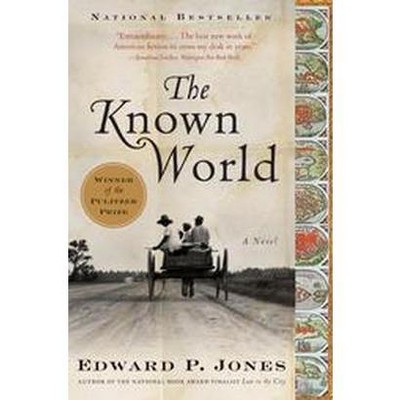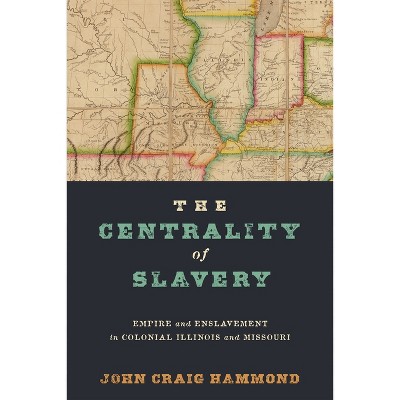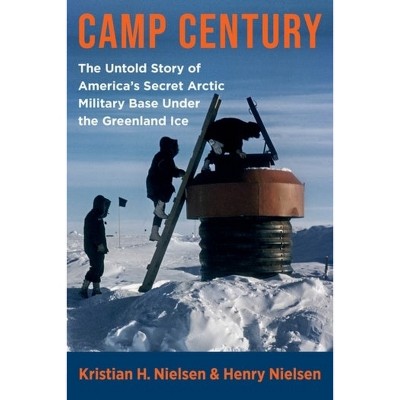Sponsored

Carpetbaggers, Cavalry, and the Ku Klux Klan - (American Crisis Series: Books on the Civil War Era) by J Michael Martinez
$121.99
In Stock
Eligible for registries and wish lists
Sponsored
About this item
Highlights
- This is the story of the rise and fall of the Reconstruction-era Klan, focusing especially on Major Merrill and the Seventh Cavalry's efforts to expose the secrets of the Ku Klux Klan to the light of day.
- About the Author: J. Michael Martinez works as a corporate attorney and teaches political science as a part-time faculty member at Kennesaw State University.
- 286 Pages
- History, United States
- Series Name: American Crisis Series: Books on the Civil War Era
Description
About the Book
This is the story of the rise and fall of the Reconstruction-era Klan, focusing especially on Major Merrill and the Seventh Cavalry's efforts to expose the secrets of the Ku Klux Klan to the light of day.Book Synopsis
This is the story of the rise and fall of the Reconstruction-era Klan, focusing especially on Major Merrill and the Seventh Cavalry's efforts to expose the secrets of the Ku Klux Klan to the light of day.Review Quotes
A well researched account of the attempt to counter the Ku Klux Klan in post-Civil War South Carolina that provides an object lesson on the difficulty of an indecisive government in countering a popularly supported insurgency, and the efforts of a dedicated U.S. cavalry officer who tried.
Martinez's book is a welcome addition to the growing body of scholarship that presents the human face of this gallant and arduous era of experimentation and progress.
Michael Martinez provides a highly readable account of the Reconstruction Klan in South Carolina, based on a wide array of sources. Particularly interesting is his account of Major Lewis Merrill, who was central to bringing the South Carolina Klan to bay in 1871.
Offers an exploratory study into the hidden world of the Klan and the men who attempted to bring it down. . . . A highly readable introduction to the making of the Klan. Recommended.
About the Author
J. Michael Martinez works as a corporate attorney and teaches political science as a part-time faculty member at Kennesaw State University. His most recent book, Life and Death in Civil War Prisons, traces the parallel lives of two Civil War prisoners. Martinez lives in Monroe, Georgia, with his wife and family.Dimensions (Overall): 9.11 Inches (H) x 6.47 Inches (W) x .9 Inches (D)
Weight: 1.27 Pounds
Suggested Age: 22 Years and Up
Number of Pages: 286
Genre: History
Sub-Genre: United States
Series Title: American Crisis Series: Books on the Civil War Era
Publisher: Rowman & Littlefield Publishers
Theme: 19th Century
Format: Hardcover
Author: J Michael Martinez
Language: English
Street Date: March 1, 2007
TCIN: 1004175518
UPC: 9780742550773
Item Number (DPCI): 247-28-4374
Origin: Made in the USA or Imported
If the item details aren’t accurate or complete, we want to know about it.
Shipping details
Estimated ship dimensions: 0.9 inches length x 6.47 inches width x 9.11 inches height
Estimated ship weight: 1.27 pounds
We regret that this item cannot be shipped to PO Boxes.
This item cannot be shipped to the following locations: American Samoa (see also separate entry under AS), Guam (see also separate entry under GU), Northern Mariana Islands, Puerto Rico (see also separate entry under PR), United States Minor Outlying Islands, Virgin Islands, U.S., APO/FPO
Return details
This item can be returned to any Target store or Target.com.
This item must be returned within 90 days of the date it was purchased in store, shipped, delivered by a Shipt shopper, or made ready for pickup.
See the return policy for complete information.
Trending Non-Fiction


$18.28
was $19.58 New lower price
4.7 out of 5 stars with 17 ratings

$4.59
MSRP $7.99
Buy 2, get 1 free select books
4.8 out of 5 stars with 123 ratings

$6.20
MSRP $10.95
Buy 2, get 1 free select books
4.8 out of 5 stars with 33 ratings

$7.09
MSRP $9.99
Buy 2, get 1 free select books
4.9 out of 5 stars with 46 ratings






